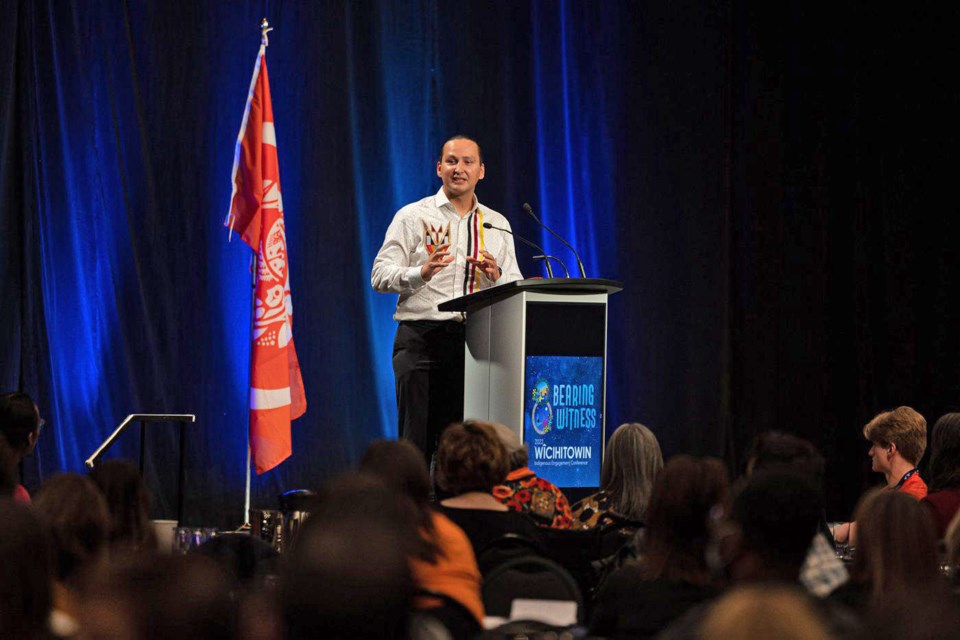SASKATOON - The chief of a Saskatchewan First Nation where more than 700 unmarked graves were found near a former residential school says there is an "amazing opportunity" to work towards reconciliation, now that these truths have become more visible to all.
Chief Cadmus Delorme was among the keynote speakers at the eighth and final Wicihitowin Indigenous Engagement Conference. Since 2014, the conference — a collaboration between Saskatchewan organizations — has worked to support the implementation of the Truth and Reconciliation Commission's Calls to Action while honouring survivors of the residential school system and the Sixties Scoop.
This year, the conference — held in Saskatoon — was focused on bearing witness, and how the act of bearing witness can lead to understanding, healing and change. This is the first time since 2019 the conference has gathered in-person.
The conference began with two keynote speeches on November 28 — a recorded conversation between former Chief Commissioner of the Truth and Reconciliation Commission Murray Sinclair and his son, University of Manitoba professor Dr. Niigaanwewidam Sinclair, as well as a speech from Cowessess First Nation Chief Cadmus Delorme.
In his speech, Delorme spoke about the journey of reconciliation, and the importance of working to "get this right."
"Today, nobody in this room, in this province and in this country created a residential school," Delorme said.
"Today, nobody created the Indian Act. Today, nobody created the Sixties Scoop and all the other colonizing ways that the Indigenous worldview was tried to be oppressed. But we all inherited this. So we have the responsibility to do something about it."
In the summer of 2021, 751 unmarked graves were found on Cowessess First Nation, near the grounds of the former Marieval Indian Residential School. Now, more than one year later, Delorme reflected back on that moment as an important time of bearing witness to the past and present impacts of the residential school system.
"For Indigenous people, the unmarked graves are validation," he said.
"Validation of the pain, the frustration, the anger, the tiredness of trying to remain Indigenous in a country that is still oppressive to the Indigenous worldview.
"(And) to my amazing Canadian and Saskatchewanian friends and family, (after) the unmarked graves … for many of you, the shield is down. Many are admitting, 'Maybe I don’t know much about the truth between Indigenous people and Canada.'"
Delorme added that "we're truly at a moment right now in our history where every one of us can reset our compass, just a little bit," he said. "I tell you, the growth and the opportunity ahead of us … is there.
"And who is going to thank us? Our children."
Monday’s conference program also included a youth panel about bearing witness, advocacy and community-building.
"The Wîcihitowin Conference provides survivors and their families with an opportunity to honour each other, acknowledge the experiences that our ancestors went through, and is a place where we can all listen and learn from one another," youth panelist Allison Fosberg said.
"Even though this is the eighth and final year of the conference, we think this is the beginning of a new reconciliation journey for the community."
The conference held a presentation by former Truth and Reconciliation Commission commissioner Dr. Marie Wilson on November 29. There were also presentations on reconciliation and the role of public policy, healing from the aftermath of residential schools, and teachings from the Saskatoon Survivors’ Circles.




